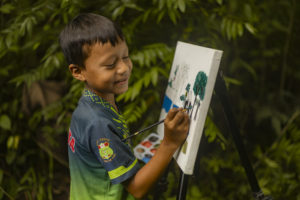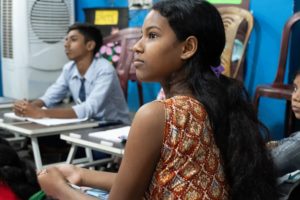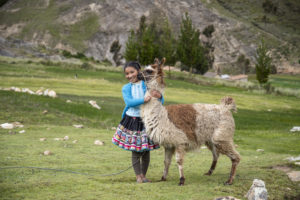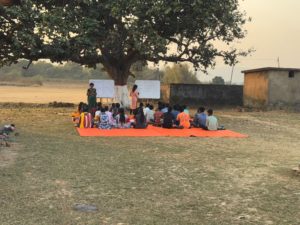Education is a right for all. One fourth of our programs’ expenditures are allocated to education, from early childhood care to professional training.
Education is a right for all. One fourth of our programs’ expenditures are allocated to education, from early childhood care to professional training.
Education is a springboard to fight poverty, to give women the means to emancipate themselves, to promote human rights and democracy. And yet, millions of children are denied access to school! The reasons are manifold. Among them, States who cannot uphold their commitments because of budget cuts. Social discriminations: children from ethnic minorities are particularly vulnerable. For some of these groups, exclusion from the education system is often a form of political repression. When they can get access to it, the programs do not satisfy their needs and classes are given in a language they do not have a full command of. Economic reasons: school is still scarcely accessible to the poorest. The costs of equipments, uniforms, books and transportation are still prohibitive. Poverty forces hundreds of millions of children to work. Gender disparities: Boys and girls are not equal when it comes to education. Preference is often given to the son, while certain customs (early marriage) and prejudices force girls to give up school. School dropout rates are higher for girls than they are for boys. Ill-adapted equipments and programs not taking account of children’s reality. Schedules unfit for students living in rural areas. Unsuitable, crowded and poorly equipped classrooms. Too few teachers, with little training and low salaries.
The action of Terre des Hommes Suisse
A multi-faceted strategy:
• Support local and community initiatives
• Encourage multi-disciplinary teaching methods (education, health, environment, children’s rights)
• Adapt to children’s reality and offer tuition in their native language
• Promote equal access to education for boys and girls
• Involve the parents in their children’s education
• Associate the local authorities to our partner’s efforts.
In Switzerland, we promote the teaching of «energy solidarity»:
The Robin des Watts project: a unique experience to raise awareness about sustainable development and solidarity. Students from the Canton of Geneva track down energy losses in their school. With the support of a municipality, they agree to set temperatures in their classrooms a few degrees cooler in order to help Peruvian students benefit from alternative energies, hot water, electricity and higher temperatures in their classrooms.




